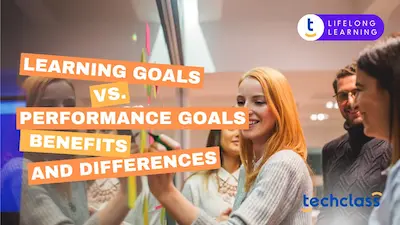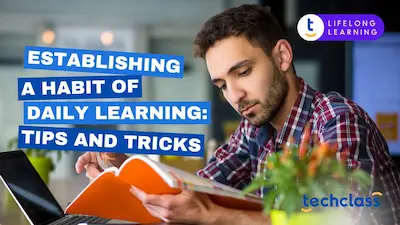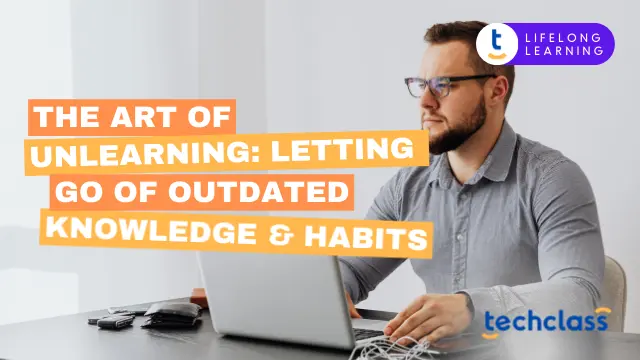
As artificial intelligence, automation, and digital disruption rapidly reshape the modern workplace, one powerful way to stay ahead is through ongoing learning. While traditional career trajectories relied heavily on one-time qualifications or long-term company loyalty, those days are quickly fading. Instead, what separates the adaptable from the obsolete is a lifelong commitment to learning and growth.
Let’s explore how continuous learning can be your most valuable tool to future-proof your career, no matter your background, age, or goals.
It’s no secret that the speed of technological advancement is both exhilarating and intimidating. From driverless cars to machine-generated content, innovations are transforming industries overnight. In this context, no job is truly "safe." Roles are evolving rapidly, skill demands are shifting, and even entire professions are being redefined.
Yet, this very unpredictability opens a gateway to opportunity, for those prepared to adapt. Understanding and anticipating these shifts gives you the ability to not only survive in this changing environment but to thrive. And that’s where ongoing learning becomes critical.
Learning to learn is now more important than learning to do. Ongoing learning is not about racking up certifications or degrees; it’s about cultivating a mindset of curiosity, growth, and resilience. This mindset also makes professionals agile in the face of forced or voluntary career shifts.
Whether you’re switching industries, responding to job market trends, or simply reigniting your intellectual passions, your commitment to growth puts you in the driver’s seat. It’s not just about staying afloat, it’s about taking control of your direction.
According to the World Economic Forum, more than half the global workforce will need upskilling by 2030. That’s not a threat, it’s an invitation. If industries are changing, so can you. In fact, many employers now place greater value on adaptable, multi-skilled professionals than on those with static credentials.
Take the accounting industry, for example. Automation is streamlining traditional tasks like data entry, but at the same time, it’s opening up opportunities for accountants to play more strategic roles as financial analysts or data-driven advisors. Those who learn to work with technology, not against it, become irreplaceable.
One of the most empowering ways to future-proof your career is to understand and leverage technology instead of fearing it. Familiarity breeds confidence. Whether it’s AI, cloud computing, or data visualization tools, getting hands-on and learning how they affect your industry can remove the mystery, and reveal new potential.
Remember when personal computers entered the workplace? Many feared they’d take over jobs. In reality, they revolutionized productivity. Today, the same logic applies to emerging tools. Once you grasp how they work, you can use them to your advantage.
While technical skills are vital, it’s human-centric capabilities, like emotional intelligence, leadership, creativity, and critical thinking, that machines can’t replicate. These are your superpowers in an automated age.
Being able to listen, communicate, collaborate, and make ethical decisions are all timeless strengths. Even as software becomes more advanced, people who can empathize with others, motivate teams, and envision strategy will always be in demand.
Ongoing learning doesn’t mean going back to school for years. Today’s learners have more flexible options than ever:
The key is to define your goals first. Are you aiming for a leadership role? Switching fields? Gaining confidence in new tools? Your learning path should support your long-term vision.
Vague intentions like “I want to improve my skills” often go unrealized. Instead, break down your aspirations into tangible, measurable steps. Do you want to be proficient in data analytics within six months? Confident in public speaking before your next conference? Clear goals will guide your learning journey and make progress trackable.
Feedback from mentors, peers, and even job descriptions can help you identify relevant gaps to fill. Don't wait for someone to assign you a learning plan, create your own and revisit it regularly.
The workplace is no longer a place where you “settle in.” Change is the new normal. Those who fight change end up wasting energy resisting something inevitable. Those who accept and even anticipate change, on the other hand, stay steps ahead.
Being open to technological, societal, and organizational shifts not only makes you more adaptable, it also reduces stress and increases your value in the marketplace. Whether you're facing new tools, evolving client demands, or shifting personal priorities, continuous learning gives you the foundation to respond rather than react.
As the gig economy grows and companies move away from long-term employment models, the burden of career development increasingly falls on individuals. Employers may not invest in your growth unless you show initiative. But this gives you freedom too, you can shape your career your way.
Freelancers, entrepreneurs, and career-changers alike benefit from ongoing skill development. It’s not about waiting for opportunity, it’s about creating it.
Learning is amplified when shared. Engaging with mentors, peers, and professional communities exposes you to new perspectives, tools, and trends. Your network can guide you, challenge you, and introduce you to opportunities you might not find on your own.
Join online forums, attend workshops, connect with thought leaders on LinkedIn, and consider joining a professional association in your field. These spaces can accelerate your learning and increase your career visibility.
You don’t need to predict the future to prepare for it, you just need to keep learning. In a world where jobs are changing but human potential is limitless, ongoing learning is your competitive edge.
Whether you're 30, 50, or 70, your best career asset isn’t a job title, it’s your ability to grow, adapt, and reinvent yourself. In the end, those who choose to learn continually won’t just survive the future, they’ll shape it.
Remember: The future doesn’t belong to those with the most credentials. It belongs to those with the most curiosity.
Adopting a mindset of curiosity is the first step toward a resilient career, but finding the right tools to support that growth can be overwhelming for both individuals and organizations. While the need for upskilling is clear, the manual effort required to curate relevant content and track progress often stalls professional development initiatives.
TechClass simplifies this journey by providing an intuitive platform that personalizes the learning experience. By leveraging AI-driven recommendations and a comprehensive Training Library, TechClass ensures that every employee has access to the specific skills they need to stay ahead. This modern approach transforms continuous learning from a daunting task into a seamless, daily habit that empowers teams to navigate the future of work with confidence.


